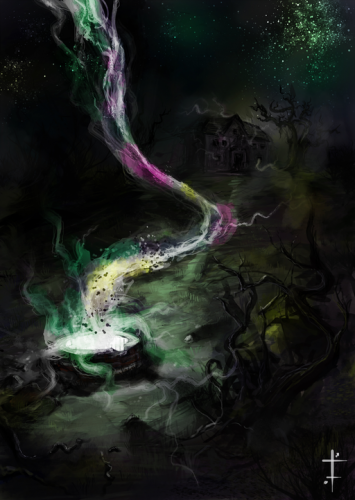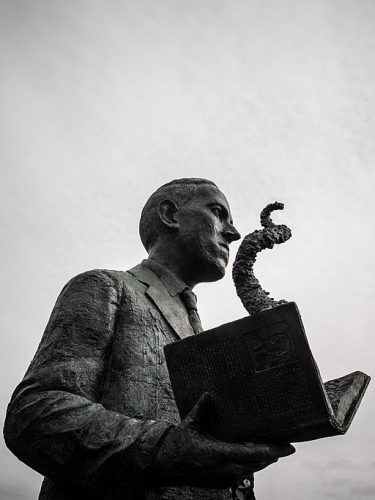During this month’s Dead Author Dedication of H.P. Lovecraft, we have talked about his life, death, literature, his own personal inspirations, and how he has inspired authors and artists all over the world since his death. The question on this writer’s mind is, “how did a master crafter of the written word end up poor and barely able to make ends meet doing what he loved?” and what that means for aspiring writers.
The Legacy of Lovecraft
Last week we delved into the topic of why and how the work of Lovecraft never really successfully makes it into the film medium; since he was such an influential writer for the horror genre. Other authors in this genre have had their work be adapted into films–sometimes these stories are so popular they have even been remade, to update the story with more modern age techniques and higher quality film in order to see if they could do a better job capturing the original source. Stephen King has been one author who has been successful and lucky enough to be able to boast this honor, the productivity of his own lifetime of writing is something of a celebrity amongst aspiring writers. Any writer would be so lucky to capture even a fraction of the renowned that someone like Stephen King has managed, but the kind of reputation that Lovecraft has grown to develop as a writer since his death has a deeper and more concealed appeal.
The thought of having a cult following has an enchanting draw for artists, one that evokes the concept of an inextinguishable legacy; an artist who may have struggled from their creative inception can’t help but entertain the fantasy of their work not only lasting long after their life has ended but becoming more appreciated with time. There have been so many artists inspired by the chaotic and terrifying concepts that Lovecraft helped to create, that we were able to construct a list of books for people interested in learning more.
Even Lovecraft himself never expected to live to see his own stories adapted into film and like all good authors and literary critics, he agrees that while the film industry is a great and complex art form, it cannot and will not ever hope to replace literature entirely. His argument here, and we’re inclined to agree, is that literature is far too complex a beast to ever be matched by the artistic avenues of film. One cannot hope to accomplish the intricacies of the written word with mere dialogue and action, where words effectively capture our innermost thoughts, desires, fears, and secrets.
Out of Mind: The Stories of H.P. Lovecraft comes across as a fairly low budget short film, which lies more in the mystery genre, but it’s a brilliant show of how Lovecraft inspired minds to create a more complex, tangled, and generally incomprehensible universe–one that alludes to far greater, far darker, far more ancient and terrible things in comparison to the world that man knows. Lovecraft’s legacy was what can really bring hope to aspiring creatives, his legacy of work speaks to the complexity of the overflowing river that is the human imagination. This is a river that can never truly run dry, but it is only the limits of our own mundane experiences that can place our creativity within constraints.
It’s important to understand that while we here at Puzzle Box Horror greatly appreciate the body of work that Lovecraft added to the horror genre, we recognize his biases and do not endorse them or agree with them. We were more than ecstatic when we found that there were actually literary responses to these particular issues and hope that such responses continue to appear within the literary community.
Now that we’ve spent a month looking into the creative, yet dark and hellish mind of H.P. Lovecraft, it’s safe to say we know a fair amount about him–but there is always more to learn about his work that helped the horror genre become what it is today?
Is there anything you’d like to add about this mad and mysterious mind? Comment below!

Georgia-based author and artist, Mary has been a horror aficionado since the mid-2000s. Originally a hobby artist and writer, she found her niche in the horror industry in late 2019 and hasn’t looked back since. Mary’s evolution into a horror expert allowed her to express herself truly for the first time in her life. Now, she prides herself on indulging in the stuff of nightmares.
Mary also moonlights as a content creator across multiple social media platforms—breaking down horror tropes on YouTube, as well as playing horror games and broadcasting live digital art sessions on Twitch.


